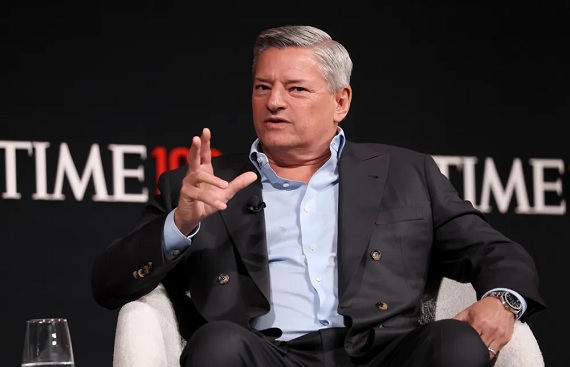Netflix CEO Ted Sarandos Calls Movie Theatre Model 'Outdated', Sparks Industry Debate
By
siliconindia | Friday, 25 April 2025, 09:44 Hrs

Netflix co-CEO Ted Sarandos has sparked the long-time debate regarding the future of movies by deeming the current theatrical release model as 'old-fashioned'. Addressing the Time100 Summit in New York, Sarandos questioned established practices and identified increasing audience preference for viewing content at home.
Sarandos pointed to diminishing box office revenues as a strong sign of shifting consumer habits. "What does that say? What is the consumer trying to tell us? That they'd like to watch movies at home, thank you", he declared, pointing to the decreased utility of the 45-day theatrical window. He underlined the fact that the model is no longer on par with viewers' expectations.
Its success, according to Sarandos, is owed to its adaptability to shifting consumer needs. "Make a movie that they love, and they will reward you", he further urged movie makers to pursue the creation of emotionally engaging pieces rather than strict conformity to long-standing formats.
While Netflix has a few cinemas under its umbrella, Sarandos explained that such theaters are principally utilized for press screenings and award qualifications instead of as a flagship distribution strategy. He also pointed out that the shared theatre experience is no longer required for a majority of spectators. "I think it is for most people, not for everybody", he explained, referencing that while audiences in places such as Manhattan do have easy availability of multiplexes, there isn't one for the remainder of the nation.
Sarandos warned against letting archaic traditions drive the future of movie-making. "I would be bothered if people stop making great movies", he said, emphasizing that even as formats change, the essence of the business should be in providing quality storytelling.
Sarandos's remarks have evoked a mixed response in the movie industry. Some interpret his words as progressive, a sign of changing times, while others interpret them as a threat to the beloved cinema experience. As the argument rages on, it appears certain that the future of cinema will be determined by the increasingly powerful influence of streaming.
